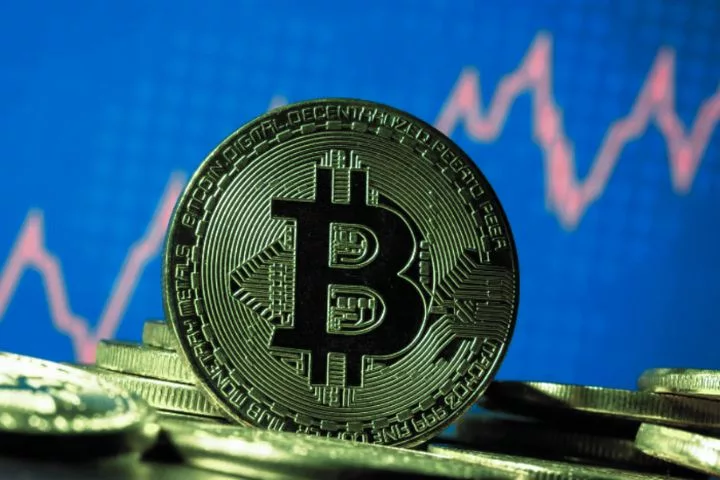Bitcoins – Brief History Of Them And What is The Role Of Secret Key

The first bitcoins in history were created in 2009 – more precisely calculated because the maximum possible 21 million bitcoins only exist on computers, mobile phones, and storage media.
The amount of Bitcoin cannot grow at will, and there is no central control option is an enormous advantage for cryptocurrency friends. Skeptics point to violent price fluctuations.
In the spring of 2022, a bitcoin will cost as much as a mid-range car. You shouldn’t just get carried away by the hype about bitcoins but also know the risks.
Very important: Bitcoins should not be the focus of your investment. You can read in this guide how to use them as a supplement.
What are bitcoins?
Even the question of what a bitcoin looks like shows that this system is entirely new. While we encounter euro coins or giro cards every day and clearly know other financial products such as a share or a gold bar, the digital sequence of numbers and letters is different.
But even if there is hardly an article about bitcoins without an imaginative illustration, these are purely symbolic images.
Bitcoins are coins that only exist on computers – i.e., only digitally. Equivalent to digital cash, some also speak of digital currency or internet currency. The idea of bitcoin: The owners can pay – regardless of government money.
In addition, bitcoins also stand for a secure exchange system. The idea is: network members can transfer money to each other worldwide and check all transactions themselves – no bank is needed for this. Even afterward, nobody in the network should be able to manipulate bitcoin transmissions.
The core of the technology is the so-called blockchain. It is the digital record where all bitcoin transactions are stored.
All network members can verify transactions (peer-to-peer technology), and powerful computers embed them in an uphill computational task. This makes fraud more difficult.
Bitcoins are also referred to as cryptocurrency. Cryptography, i.e., encryption technology, plays a crucial role in creating the blockchain.
After all, something that usually happens with purely digital goods should be avoided: that a copy cannot be distinguished from the original and that “counterfeit money” floods the market.
It is unclear who came up with the idea for Bitcoin. So far, the inventor or inventors have not spoken with their real identity. In any case, the idea quickly aroused interest, initially above all among users who wanted to be independent of states and central banks.
There are now numerous other cryptocurrencies. Some, like Bitcoin Cash, are derived from Bitcoin. Others, like Ether (Ethereum), were developed separately.
With a market share of around 39 percent of all cryptocurrencies, Bitcoin is still the best-known and most widespread (as of April 10, 2022).
You can find out more about exactly how the blockchain works and how bitcoins are created in the first place below.
The usual abbreviation, the ticker symbol for Bitcoin, is BTC. XBT is sometimes used as another abbreviation.
The latter follows the international ISO standard, according to which the beginning of a currency abbreviation must always correspond to a country code (as with EUR or USD) – but with Bitcoin, no country can be defined, hence the X.
What does bitcoin cost?
The price of bitcoins is based on supply and demand. Due to increasing media coverage, interest and demand have risen steadily in recent years.
At the same time, the collection is limited because the Bitcoin network can only gradually produce new coins. You can read more about this below.
A Brief History of Bitcoin
When the digital currency started in 2009, and hardly anyone knew it, supply and demand were low – the rate was less than 1 US dollar at the time.
At that time, it was mainly those who bought with conviction who wanted a currency independent of central and commercial banks.
Today, those still there from the first Bitcoin owners have a fortune in their digital wallets. The price has increased dramatically over the years.
Investors also increasingly invested in 2017. They saw bitcoin and the computer technology behind it as the next “hot thing” and drove the price up.
On closer inspection, however, the course is by no means only on the way up. From the interim record level in December 2017 (16,600 euros), Bitcoin fell to below 3,000 euros and lost more than 80 percent of its value.
At the end of 2020, the Bitcoin price again exceeded the EUR 16,000 threshold and reached a new all-time high in February 2021 by exceeding the EUR 40,000 mark.
With these magnitudes, it is, of course, also possible to trade individual parts of an entire bitcoin. A thousandth or 0.001 bitcoin has been worth around 30 and 50 euros in the past few months.
The smallest defined subunit is Satoshi and corresponds to one hundred millionth of Bitcoin.
Since October 2020, US users of the PayPal payment service have been able to buy and sell Bitcoins via their customer account (exception: Hawaii).
A transfer to other accounts is currently not possible. At the same time, Paypal also expanded its range to include the cryptocurrencies Ethereum, Litecoin, and Bitcoin Cash. Since 2021, PayPal users from the USA have also made purchases with bitcoins.
Paypal then exchanges the digital credit during a transaction for conventional money, for example, in dollars (“Checkout with Crypto”). Paypal also wants to offer a bitcoin service in other countries.
A corresponding service was launched in Great Britain in the summer of 2021. It is not yet known when Germany will be part of it.
Are bitcoins a good investment?
The idea of bitcoins might be fascinating for you too. Nevertheless, there are a few good reasons why you should never use digital coins as the focus of your financial investments or as a basis for private old-age provision, but at most as an admixture.
Bitcoins do not work as a means of payment – Neither the department store nor the tax office accept Bitcoins, and most likely not your landlord. But there are some online retailers and a few shops so that you can pay for food at Lieferando with Bitcoin.
The Ukrainian government accepts donations in bitcoin and other cryptocurrencies to support the army and civilians in the war against Russia. There can be no question of widespread acceptance yet. This can, of course, change in the future.
Notable exceptions are El Salvador and the Central African Republic. Central America became the first country in the world to adopt Bitcoin as a legal tender in September 2021.
Bitcoins are not secured – Anyone who buys a German government bond and thus lends money to the federal government for a few years knows they are entering into a secure transaction.
Germany is in an excellent financial position and will likely be able to repay the money plus interest. There is usually statutory deposit insurance on bank balances, which will step in in the event of bankruptcy.
Bitcoins are much less secure: there is no state or central bank behind the digital coins. Nobody guarantees that your Bitcoin balance will generate fast returns and that you can exchange it back into euros after a few years. The German regulator Bafin and the British FCA have warned of the risk of losses in crypto assets.
Bitcoins have no material value – if you have a share in your portfolio, you are involved in a company with all its assets. If you store gold in the vault, you can be sure that you can use it to pay in the event of a crisis – the material value and the millennia-long history are therefore recognized.
This is different from bitcoins. There is only one (very young) idea behind it. Bitcoins only have value if people believe in the cryptocurrency’s success.
As soon as many speculators turn away from bitcoin, the euro value of bitcoins can quickly slide. You risk losing everything.
On the other hand, there are, of course, reasons for investing in Bitcoin.
Bitcoin’s Strong Growth – You don’t have to return to the early days to find impressive growth numbers. Anyone who started trading for EUR 10,000 in summer 2020 could look forward to a fivefold increase in their bitcoins in autumn 2021.
A broadly diversified equity ETF on the MSCI World will certainly not be able to do this in a little more than a year.
However, such figures from the past do not allow any conclusions to be drawn about the future. Course slides have existed since then and may live in the future.
Bitcoins can compensate for the disadvantages of other types of investments – inflation nibbles at every investor’s portfolio. While the return on safe assets such as call money and fixed-term deposits is lower than the rate of inflation in most years, stocks offer the opportunity for better performance.
How Bitcoin will behave here in the long term is difficult to estimate. The upper limit of 21 million units is a possible argument for bitcoin as a protection against inflation because the stock cannot be increased at will.
As described above, however, the demand for Bitcoin must also remain in place for the strategy to work. A scarce commodity is not automatically valuable.
Bitcoins make you independent of banks – At the heart of Bitcoin, the idea is the desire to invest independently, especially without banks.
This desire is understandable at first glance. However, the question arises about how disadvantageous doing business with banks is for you and how well the alternative would work.
In a developed financial market like Germany, there are many options for customers to combine both good services and low fees with banking products. (Financial tips will help you to do that with the bank comparison.) Indeed it looks different in some countries.
Where can you buy bitcoins?
Do you know the risks of bitcoins but still find the idea of the digital currency exciting and want to stay on top of the topic? In our Buy Bitcoin guide, we show you step by step how you can order Bitcoins with a reputable account.
Nevertheless, you should only invest a small amount of money in bitcoins, i.e., sums you might otherwise have spent on playing the lottery or speculative investments – and the loss does not bother you.
You can buy and sell bitcoins on various trading venues on the internet. Well-known international platforms are, for example, Kraken or Binance, from Germany also Bison. You can exchange bitcoins for euros on them.
Before registering, find out what buying and selling fees the provider charges for Bitcoin trading. For example, these can be 1 percent of the Bitcoin amount, but they are also higher for some providers.
Fees may also apply if you want to deposit or withdraw them later and transfer bitcoins to a separate wallet – a kind of digital wallet – to keep them there.
It would be best if you never went to a trading venue with little or no independent media coverage. There are many fraudsters in this comparatively young market. You should also ignore advertising emails that advertise an investment in bitcoins.
Depending on the trading venue, you would get the bitcoins from different sellers. Sometimes there is a bank in the background with a bitcoin inventory that uses it to serve the users’ orders.
Other providers like bitcoin.de work more like an exchange platform, comparable to eBay classifieds. Investors can register and post offers to buy or sell in euros.
Buyers and sellers decide for themselves what price they want for the bitcoins. Users can compare the offers directly.
Some trading venues are also referred to as stock exchanges or crypto exchanges. However, there is no legal framework for trading in bitcoins or other cryptocurrencies.
The Bitcoin trading places are therefore not comparable to the regulated stock exchanges such as the Frankfurt Stock Exchange.
How does a Bitcoins transaction work?
The remarkable thing about Bitcoin transfers is that they are considered particularly secure. Only the owner of the Bitcoin wallet should be able to use the Bitcoins in it.
What is the role of the Bitcoin secret key?
Every owner of a digital wallet is assigned several Bitcoin addresses, i.e., a set of account numbers. Each consists of randomly generated numbers and letters, for example, 45n2gtthr4kGGuqjPL5XWTPnhiuW9A. Wallet owners can then send amounts of money in Bitcoins from one address to another.
To secure the transmission, a so-called private key is also required. It is generated when the wallet is created.
The private key is either stored privately by you or is installed directly in the hardware – and it is secret. Nobody can disclose it so quickly. A transfer is only approved at the end of the private key fits the wallet exactly.
Once approved, transfers are recorded in the blockchain and cannot be changed or reversed.






